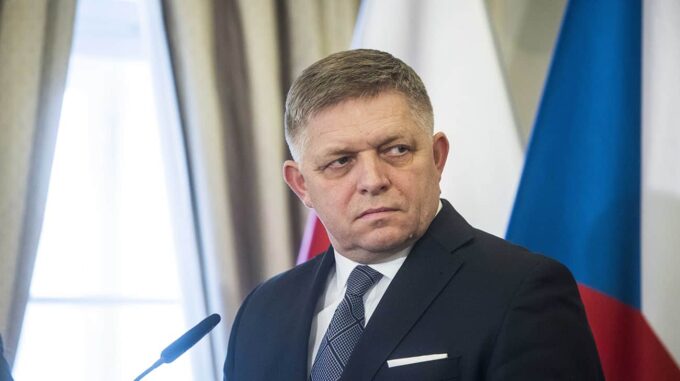Russia considers the security of participants in the Moscow parade an internal affair – Fico

Amid active diplomatic discussions regarding upcoming events in Moscow, Slovak Prime Minister Robert Fico expressed his firm position on the security of participants in the traditional military parade scheduled for May 9. At a press conference, he emphasized that the issue of guaranteeing the safety of delegations arriving from various countries worldwide is solely Russia’s responsibility, and called for avoiding political manipulation in this area. In particular, Fico harshly reacted to statements by Ukrainian President Volodymyr Zelensky, who previously declared that Ukraine is unable to ensure the safety of foreign politicians during festive events in Moscow, given the complex security situation in Russia. The Slovak Prime Minister highlighted that Zelensky’s statements could endanger the lives and health of diplomats and high-ranking officials from countries forming international coalitions, and considers such remarks unacceptable. “I completely dismiss any threats regarding security from any political leaders, because this is not just a diplomatic issue but a matter of vital importance for international security. The safety of participants is an internal matter for Russia, and the country must independently guarantee appropriate conditions for events of such scale. However, if any of the colleagues hint at possible dangers or resort to provocations, it does not help peace and could lead to negative consequences,” Fico stated. He reaffirmed that when discussing the theme of celebrating victory over fascism in 1945, it is important not to forget Ukraine’s historical role in World War II. According to the Slovak Prime Minister, future commemorative events should not be reduced to political or ideological conflicts of the past, as today it is crucial to demonstrate unity in the fight against contemporary aggression. “I found it extremely regrettable that many politicians, including Zelensky, are starting to conflate historical past with the present. Ukraine in 1941–1945 suffered enormous losses in the fight against fascism. That is why it is now important to show respect and reverence for historical myths, and not fall into provocations that could tarnish the memory of those who gave their lives for freedom,” he added. Talking about the risks and difficulties, Fico mentioned his support for respectful attitude towards history and emphasized the need to avoid conflicts around significant dates. According to him, symbolic solidarity with war victims should be expressed through respect and remembrance, not through political provocations or hasty statements. Against the background of this diplomatic tension, on May 3, President Zelensky officially stated that Ukraine will not be responsible for the security of foreign delegations and guests planning to visit Moscow for the May 9 celebrations. He said that Russia could carry out provocative actions at any moment, which would make ensuring their safety unmanageable for Ukrainian authorities. The diplomatic background is complemented by statements from European politicians. For example, European Union Chief Diplomat Catherine Kalergi called on European leaders in April to refrain from participating in military celebrations in Moscow this year. She emphasized that showing solidarity with Ukraine is sometimes more important than participating formally in parades or official events that could serve as propaganda tools for the Kremlin. Overall, the situation around May 9 in Moscow has become a contested sphere of not only diplomatic debate but also a symbolic battleground for the fight for historical truth and political positioning amid the current war. Based on the stance of the international community, it is clear that issues of security and historical memory remain at the forefront of political discussions, requiring delicacy and responsibility from all sides.

